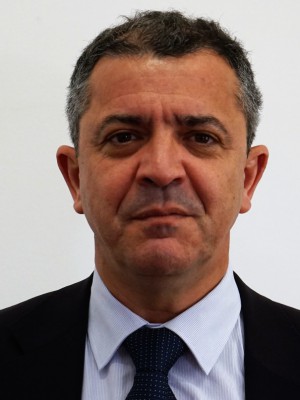resumo
The use of alternative plasticizers with low toxicity and good compatibility with polyvinyl chloride (PVC) has become more attractive in the recent years in contrast with the phthalate derivatives. In this study, an additive derived from castor oil (methyl acetyl ricinoleateMAR) was tested as a plasticizer for PVC. MAR was added to PVC in a range of 50-90 PHR and the increase of the plasticizer content had a great effect on maximum tension and tension at 100% of PVC samples. Moreover, the elongation at break also increased with the increase of plasticizer content. The good miscibility with PVC and therefore efficient plasticization action of MAR were proved by the DMA results, since narrow peaks of tan () curves were observed. Moreover, the increase of MAR content reduced the Tg values of the samples [from 8.2 degrees C (50 PHR) to -25.6 degrees C (90 PHR)]. PVC samples obtained using this bio-based plasticizer demonstrated good rheological properties [the increase of plasticizer content increased the MFI from 3.977 (50 PHR) up to 44.244g.10min(-1) (90 PHR)] and proved to be thermally stable up to 200 degrees C. Finally, the MAR PVCs presented lower densities and lower hardness when compared with those produced from traditional plasticizes which are important aspects for the manufactories and consumers of PVC. In that sense, MAR proved to be a suitable plasticizer for PVC which may find a broad range of applications in the electric wires, carpets, hoses, shoes and construction industry, among many others.
palavras-chave
CASTOR-OIL; MECHANICAL-PROPERTIES; THERMAL-DEGRADATION; SOYBEAN-OIL; FATTY-ACID; PVC; ESTER; OPTIMIZATION; PRODUCTS; BLENDS
categoria
Engineering; Polymer Science
autores
Gama, NV; Santos, R; Godinho, B; Silva, R; Ferreira, A
nossos autores
agradecimentos
This work is funded by ERDF Funds through Operational Competitiveness Programme-COMPETE in the frame of the Project GREENPEC-FCOMP-01-0202-FEDER-34132 and developed in the scope of the Project CICECO-Aveiro Institute of Materials (Ref. FCT UID/CTM/50011/2013), financed by national funds through the FCT/MEC and when applicable co-financed by FEDER under the PT2020 Partnership Agreement.




